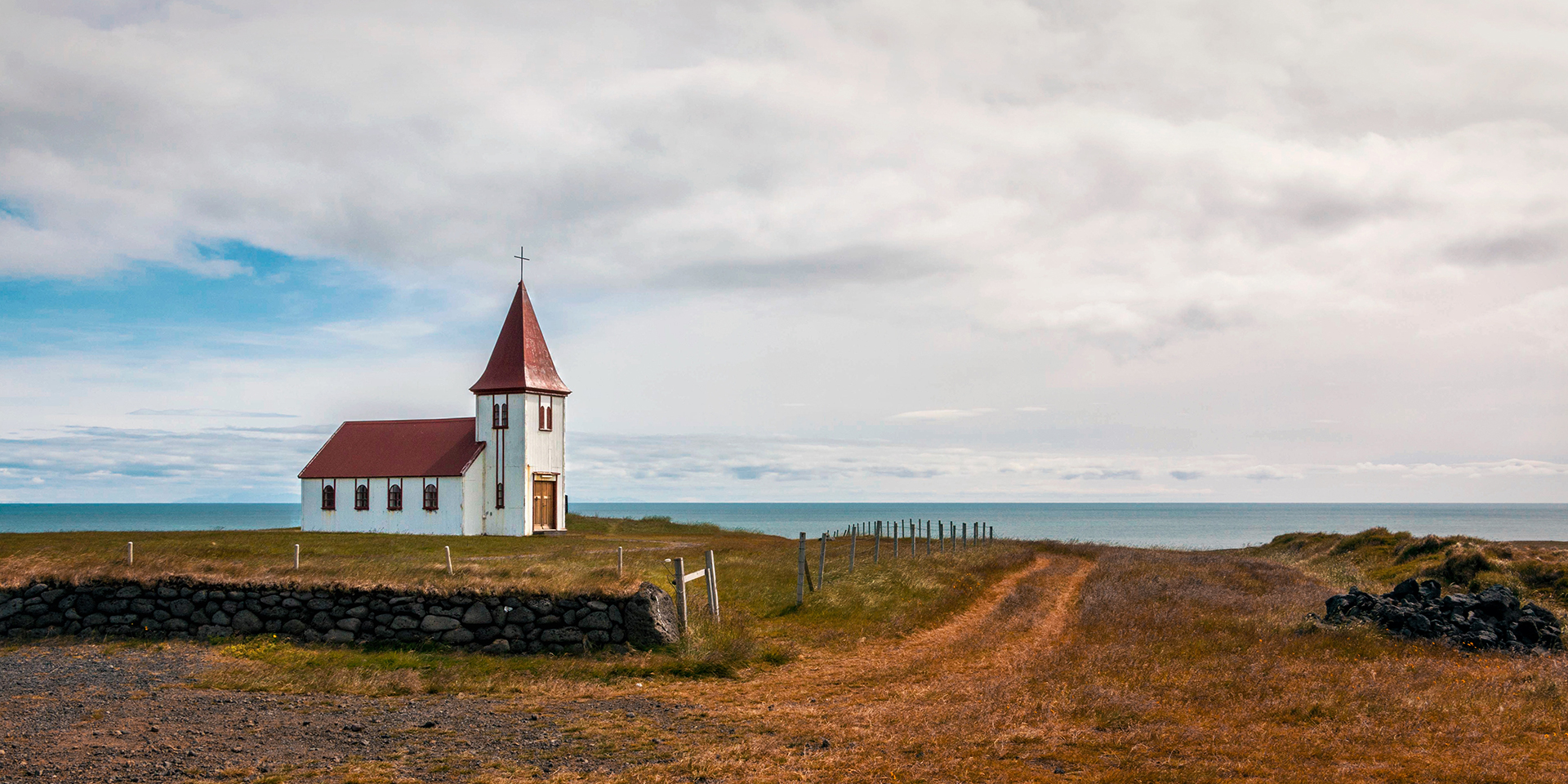“It was as if I were living in a fairy tale. And the most wonderful part was that I knew—hard as it may be to believe—that the story was true. None of the hardships of imprisonment touched me. The fear of the unknown no longer unsettled me, nor did the fact that, three days after my arrest, no one had yet called me in for interrogation. I knew it would come, but I waited for it without the slightest fear.” —Nicole Valèry Grossu
Paradoxically, although Christians rejoice in the law of freedom as a divine gift, it is often precisely this freedom that leads them to endure imprisonment. Christian morality itself rests on this “law that gives freedom” (James 2:12), given as the liberating grace of the Saviour, because only a free person can truly be responsible for their life. This law of freedom, which flows not from human authority but from God’s justice and love for humanity, enables Christians to make courageous choices and decisions—choices that may involve protesting unjust laws, self-sacrifice, acts of compassion, and renunciation of self. More often than not, these choices also demand a curtailing of one’s own freedom, or even the surrender of it altogether.
“What can man do to me?”[1]
With a psalm-like resonance, this became the guiding principle of young Nicole, the niece of renowned statesman Iuliu Maniu, during her four years of political imprisonment in 1950s Romania—years without trial, without a formal sentence, under a totalitarian regime.
She wrote: “It is hard to capture all that these holy words meant. Who had brought them back to my mind, and how perfectly they fit the moments I was facing! They guided me without fail and became the motto I repeated each time I was led, blindfolded, to interrogation. I would repeat them silently in my mind during questioning, as threats, blows, and other physical and psychological tortures rained down upon me.”[2]
Nicole endured these humiliating interrogations without betraying her friends, colleagues, or acquaintances, despite the insistent and cynical demands of her interrogators. The explanation for her extraordinary strength lies in the power of faith and her complete surrender into God’s hands—a faith she had embraced shortly before her arrest.
She had experienced a providential encounter with an anonymous man of faith who told her: “A person’s life on earth has no meaning unless it is lived in view of the eternal joy of the Kingdom of Heaven.”[3] These words gave her miraculous strength. They enabled her to distinguish between the earthly world and the heavenly one, showing her direction and purpose, and putting human malice and obstacles into perspective.
In her memoir, Bless You, Prison!—written during her exile in Paris, where she worked as a Christian journalist—she recalls: “When I heard those words from that man of faith, I knelt beside him and asked Jesus to take my life into His hands forever. In that moment, my soul was filled with the same serene joy and the same light that reached into every corner of my being, with the same strength and the same desire to live as I feel this very morning, here in the cell where I am.”[4]
“It is mine to avenge; I will repay”[5]
The intellectual and Christian thinker Mircea Vulcănescu, arrested by the communists as a former government official, proved himself in prison to be a genuine believer, consistent with his religious thought and writings.
He encouraged his fellow prisoners and, despite the harsh treatment that drove others to the raw instinct of survival, he helped them—even to the point of self-sacrifice. While held in solitary confinement with other inmates, left in the cold, barefoot in icy water and stripped of clothing, he saved a weaker prisoner from death by lying down on the ground to serve as a bed so the man could rest. In the end, tuberculosis claimed his life, and his final words were: “Do not seek revenge!”[6]
The principle behind this non-retaliatory attitude is the ability to see and understand the evil at work behind evil people. That perspective prevents vengeance and allows one to perceive the larger struggle between good and evil. It also inspires compassion for those who, for various reasons, become unconscious instruments of evil: through self-deception; through the seduction of ideologies and doctrines; through a voluntarist desire to solve crises or social problems; through opportunism; or even through a misguided piety that persuades them that by persecuting others “they are offering a service to God” (John 16:2).
“The Lord is with you, mighty warrior”[7]
The same astonishment that gripped the biblical Gideon when he heard this angelic encouragement must also have touched those heroes of faith who, without knowing their strength or trusting in their own abilities, chose to take a stand when others were hesitant, cowardly, fearful, or even traitorous. Such was the case of Richard Wurmbrand who, at a gathering of Romanian clergy of all denominations—convened to be briefed on the new restrictions of the communist regime—stood up in opposition, alone. He had heeded the urging of his wife, Sabina, who told him to take a stand in order to “wipe the shame from the face of Jesus.”[8]
Richard Wurmbrand publicly opposed and protested against the abusive restrictions on religious life in 1950s Romania, as well as against the servility of some of his fellow clergy. His powerful example highlights a fundamental principle: when you are certain that you are acting according to God’s will, you must be ready to take action on your own, without waiting for others to join you, defend you, or offer encouragement. Courage and strength, in such moments, come from God alone.
Foreigners and strangers on earth…yet lovers of their fellow men[9]
This principle of how the Christian is placed in the world helps us understand the superhuman capacity for sacrifice shown by some believers. It springs only from divine love, which fills the soul, overflows, and is shared with others. Among those who lived this brotherly and godly love was again Richard Wurmbrand. Once freed from the unlawful imprisonment where he had endured so many inhumane treatments, he returned home and, while praying with his wife, asked God that if he could serve others better in prison than in freedom, He would send him back there once more. His wife, with difficulty, also uttered “Amen.” Soon after, the courageous Lutheran pastor found himself spending several years in what was called “the antechamber of death,” a cell for the dying, where he managed to bring comfort to many and help them make peace with God.
“I desire mercy!”[10]
In his book In God’s Underground, Wurmbrand also recounts the noble gesture of prisoners who would “take the place” of their fellow sufferers when, under the false names imposed by the authorities, the weakest among them were called out for interrogation and torture.[11]
Another profoundly Christian and noble act belongs to the Presbyterian pastor and Olympic athlete Eric Liddell, best known for refusing to run on a Sunday at the 1924 Paris Olympics—a decision “rewarded” by Providence with a gold medal and a world record in an event that was not his specialty. His greatest act of Christian mercy and self-denial, however, came later, as a prisoner in a Japanese internment camp in China during World War II. When offered a chance to be freed in a prisoner exchange arranged by Winston Churchill, the British prime minister, Liddell refused and instead proposed that a pregnant woman be released in his place. The following year, he passed away.[12]
“He has shown you, O mortal, what is good”[13]
Martin Niemöller was the Lutheran pastor who entered history for his warning to all people of goodwill who choose not to take a stand against the wrongs and abuses committed within their own society. It is enough for them not to protest, not to show solidarity with others, not to defend civic freedoms when those freedoms are denied to others—for evil to prevail.[14]
Niemöller is also remembered for his courageous protest against Hitler, expressed in a letter co-signed by several other pastors and published in Time magazine in 1936. The letter, which led to his arrest, publicly warned the Führer that he was beginning to think of himself as God and to accept from his subjects an exaggerated form of adulation. Niemöller wrote: “Our people are trying to break the bond set by God. That is human conceit rising against God. In this connection we must warn the Führer, that the adoration frequently bestowed on him is only due to God.”[15]
The principle Niemöller lived by was that a Christian cannot neglect his civic and communal responsibilities, including the defense of freedom of conscience—even when that freedom is denied not to himself, but to others.
“Take heart! I have overcome the world”[16]
Martin Luther King Jr.[17] remains the emblematic leader of peaceful protest in the United States, protests that proved decisive in dismantling racial segregation in the latter half of the 20th century. His stirring “I Have a Dream” speech warmed countless hearts because it flowed from a heart in which God had placed the principle that “all men are created equal.” He delivered it in 1963 before a vast crowd gathered at the Lincoln Memorial in Washington, D.C. The fact that such an essentially peaceful man was assassinated in public by gunfire gives him the aura of a victor—not a conqueror of the sinful world he lived in, but its overcomer, after the model of Christ. Viewed spiritually, the world is not to be conquered but overcome.
“Abstain from sinful desires, which wage war against your soul”[18]
The principle the Apostle Peter highlights here shows the true source of dangers that can degrade the soul and numb the conscience. The more a Christian makes concessions and compromises to the flesh, the more the soul becomes enslaved and the conscience loses its freedom.
Even in times of peace and democracy, Christians face situations where they must choose between compromise and fidelity to conscience—especially those in positions of authority and responsibility. Judge David Maraga, the current Chief Justice of Kenya’s Supreme Court,[19] impressed the panel that selected him when, without being required by any formal oath, he asked for a Bible and swore upon it that he had never taken a bribe and never would throughout his career as a magistrate. In 2017, he had the courage to annul Kenya’s presidential elections as chair of the Judicial Commission, citing reasonable suspicions of corruption. Moreover, respected by his peers for his integrity and professional probity, he is allowed to honor his conviction not to work on the Sabbath, in keeping with the Fourth Commandment (Exodus 20) and his Seventh-day Adventist faith.
“…walk humbly with your God”[20]
And yet, there is the remarkable case of Christians who, without doing anything extraordinary in their life of faith, manage—often without even realising it—to influence entire groups and communities. The principle of humility is the foundation on which their lives rest.
Such was the case of an Adventist family in South Africa, about whom little is known beyond the fact that they lived their faith with honesty. Their quiet testimony helped build a reputation of trust around Adventists that was invoked at a crucial moment during the Second World War. When the American Adventist pastor N. F. Brewer, returning from many years of mission service in China, was stopped at the border under suspicion of espionage—too well integrated in his adopted country and released too quickly from a Japanese internment camp—an American admiral intervened. “If this man is an Adventist,” he declared, “I can guarantee with absolute certainty that he poses no threat to the country.”[21]
Carol, the daughter of Pastor Brewer, later married Richard Nelson, an American who knew Japanese language and culture so well that he helped U.S. officers decipher all of Japan’s wartime transmission codes. He even identified the emperor’s message announcing his intention to surrender.
An ordinary family of quiet believers—far from spectacular—ended up shaping the outcome of a world war. Carol later observed: “These two spouses did nothing more than live up to their faith, and they changed our lives without ever even knowing us!”[22]
The principle of walking humbly with God stands out as perhaps the most remarkable of all. Without humility, there would be no divine grace in our lives, no strength to resist evil, and courage itself would amount to little more than reckless bravado. Humility places us in God’s hands, where He can carry us freely through prison, through war, through hardship, danger, and persecution—and lead us safely to shore, victorious over both the world and our own human nature.














